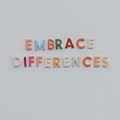An element of diversity, equity and inclusion (DEI) that has historically been ignored but has recently been receiving more attention is neurodiversity. It is the subject of many new studies, and rightly so.

Lydia Shadrach-Razzino, Partner, Head of Corporate/M&A, Baker McKenzie Johannesburg
For too long, neurologically diverse employees have felt the need to mask their way of looking at the world. Now, we are discovering that many amongst us are neurodiverse, and therein lies our collective strength. Neurodiverse employees are acknowledged for their role in significantly boosting team creativity and productivity but often don’t feel comfortable to reveal their neurodiversity.
On World Autism Awareness Day, it is pertinent to ask if we are doing enough to ensure that neurodiverse employees feel like they belong and that their needs and workplace requirements are being met. Do we know that there are neurodiverse people in our teams, or are we comfortable letting them continue to mask, thereby aiding our own comfort levels? Do neurodiverse employees feel comfortable revealing their neurodiversity to their colleagues?
In Harvard Health Publishing, Nicole Baumer and Julia Frueh defined neurodiversity as “the idea that people experience and interact with the world around them in different ways; there is no one ‘right’ way of thinking, learning and behaving, and differences are not viewed as deficits.” This includes those with conditions such as autism, dyslexia, dyspraxia and ADHD. Around 15–20% of the global population is neurodivergent.
Benefits of a neurodivergent workforce
The benefits of having a neurodivergent workforce include that neurodiverse employees are found to be highly sensitive and high achievers, characteristics that lead to great potential for success. For their potential to be reached, they need an inclusive environment that caters to and adjusts to their needs, while still providing them with the same opportunities as their peers.
Embracing this form of diversity has been shown to lead to competitive advancements through innovation and efficiency. JP Morgan Chase’s Autism at Work initiative, for example, revealed that neurodiverse employees made fewer errors at work and were 90–140% more productive than their neurotypical counterparts.
How much more successful could we all be as a collective if we accepted and drew on the strength of each other’s differences? There is plenty of proof in the numbers (for those who need hard numbers). Forbes shows that truly inclusive teams make better decisions up to 87% of the time and make decisions two times faster in half of the meetings. Further, decisions made and executed by diverse teams delivered 60% better results.
With the challenges the world faces now, we need this mix – this confluence of ideas that come from different upbringings, educations, backgrounds, orientations and thought processes. If we get it right and are able to move from masking to belonging, imagine the world that will rise out of that energy.
What will you do today to ensure you take your rightful place, own your differences as strengths, and belong in your world? More importantly, what will you do to make others feel they truly belong in this world we all inhabit?
Discovering our differences, whether they are visible or masked, is cause for celebration. These differences mean our teams will be stronger, faster, more innovative and much more productive. Embracing these differences is how we grow stronger, and cherishing these differences in ourselves and in each other is how we find belonging.
This article was originally published by a www.bizcommunity.com . Read the Original article here. .





